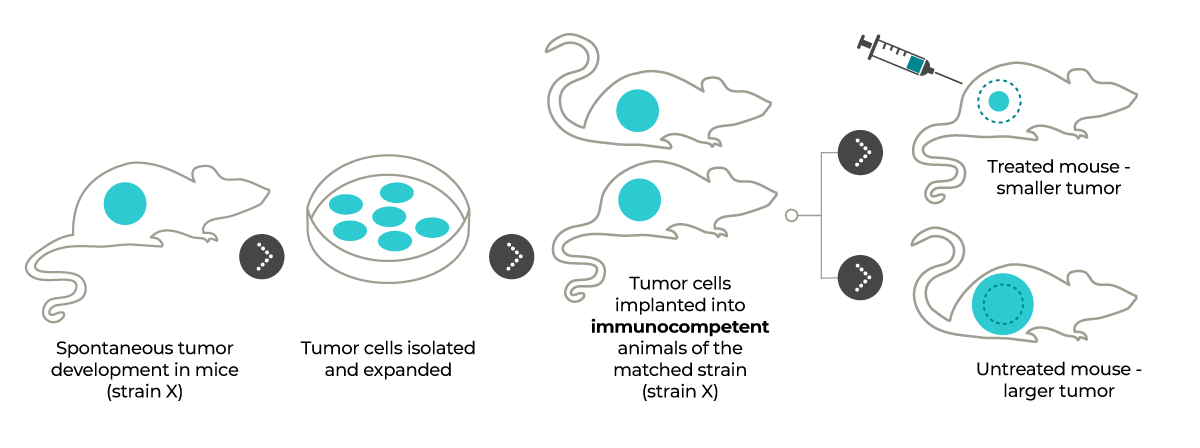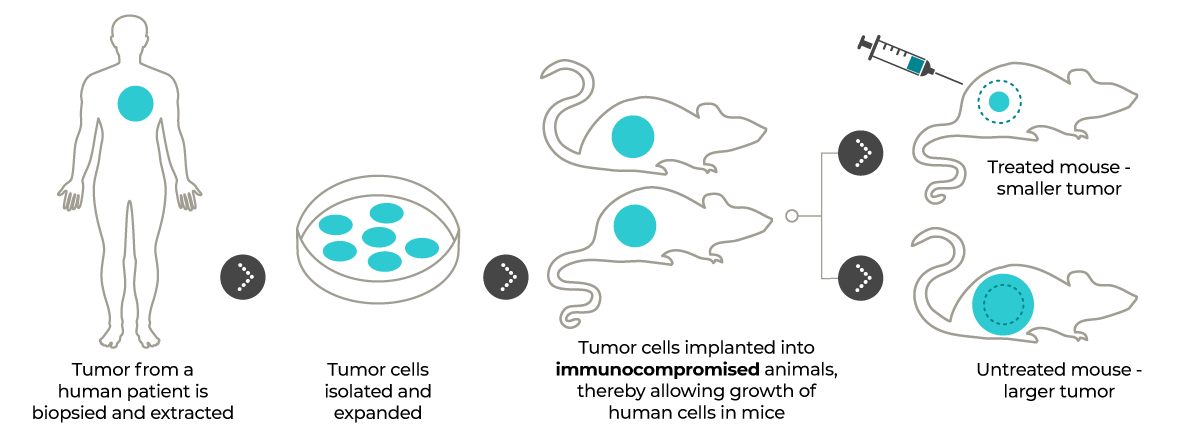Oncology Models
Discover how Melior’s unique phenotypic screening platforms can uncover the untapped value of your candidate therapeutic
Mouse models of cancer enables researchers to learn about tumor biology in a complicated and dynamic physiological system. Although studies using culture systems of cell lines derived from human tumors continue to provide valuable information and remain important to cancer research, their limitations include the inability to examine physiological interactions among and between tumor cells and their environment in vivo.
Multiple types of oncology models are available depending on research needs.
Syngeneic tumor models are the oldest and most heavily utilized preclinical models to evaluate anticancer therapeutics. As these models are fully immunocompetent, they are particularly useful in the evaluation of immune-oncology agents, as they can be used to study the generation of de novo anti-tumor immune responses and do not require the adoptive transfer of immune populations.

Human xenograft models, using human cell lines injected into immunocompromised hosts such as athymic nude or severe combined immunodeficiency (SCID) animals, are one of the oldest models used to evaluate cytotoxic therapies against cancer. These models have particular relevance for the development of chimeric antigen receptor (CAR) T-cell therapies, which can utilize either human cell lines or patient-derived samples to generate xenografts for anti-tumor efficacy evaluation.
Selecting the correct model for evaluating anti-cancer activity of test agents is an important first step in a research project.




 Interested in running an Oncology Model study?
Interested in running an Oncology Model study?